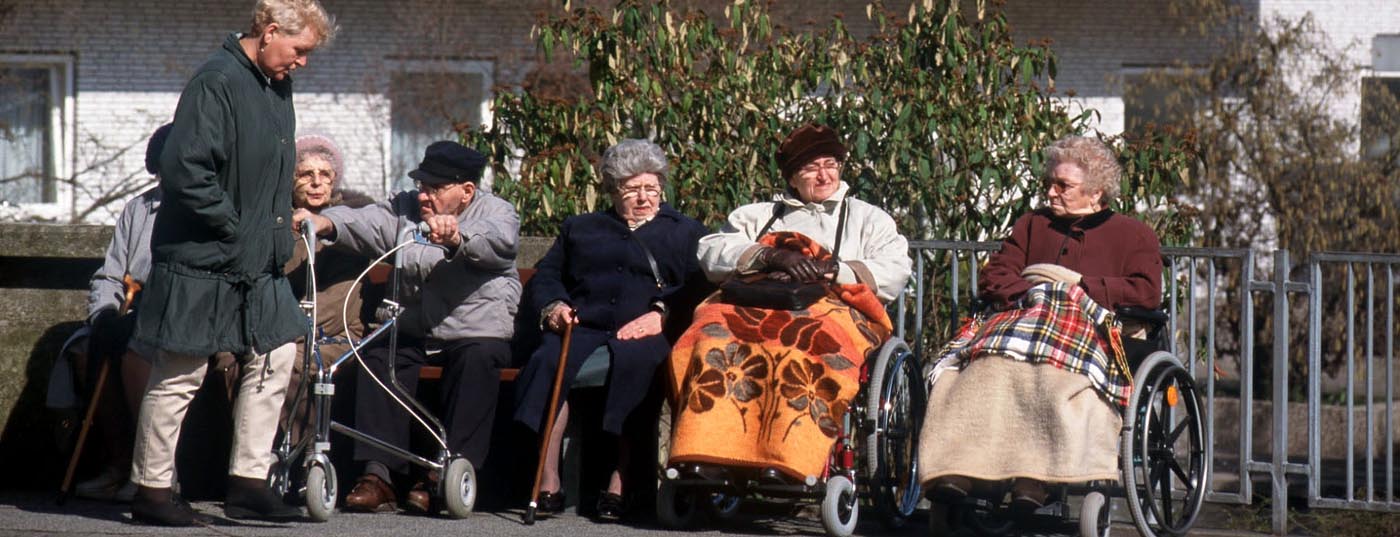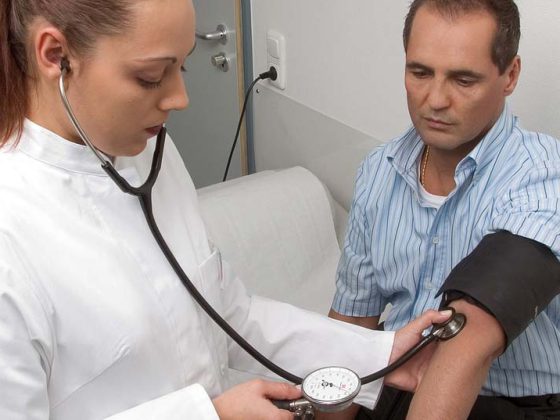Two lectures at the 23rd European Stroke Conference in Nice were dedicated to the topic of stroke. On the one hand, it was about effective prophylaxis. How can intracerebral hemorrhage or hematoma growth be addressed to prevent severe sequelae and stroke? On the other hand, the focus was on care concepts that could help patients after stroke. It was shown that occupational therapy is not a suitable concept, at least in nursing homes.
(ag) How can the expansion of an intracerebral hematoma be effectively prevented? This is the question addressed by a new post-hoc subanalysis of the INTERACT2 randomized controlled trial [1]. Intracerebral hemorrhage can sometimes be due to antithrombotic therapy. Such forms are associated with greater hematoma growth and, as a result, higher rates of death and disability. Despite the poor prognosis, effective prevention or treatment strategies are limited. Thus, in the subanalysis presented at the ESC, the aim was to determine whether early intensive blood pressure lowering could influence hematoma growth in patients with such intracerebral hemorrhage. Those patients whose intracerebral hemorrhage could be attributed to antithrombotic therapy (because the subjects had taken such drugs previously) were compared with the remaining population (without such prior therapy). Pooled data from those patients from INTERACT2 who had also participated in the computed tomography substudies were used.
According to Lili Song, MD, Shanghai, 963 patients with acute intracerebral hemorrhage and elevated blood pressure were randomized to either intensive or guideline-compliant blood pressure therapy. In the first group, the target systolic blood pressure was 140 mmHg, in the second 180 mmHg. The active ingredients preferred by the physician were used. One performed CT scans in all participants at baseline and then repeatedly, as mentioned. The end point was the growth of the hematoma with/without intraventricular hemorrhage at 24 hours.
RESULTS: 207 of the 963 patients had antithrombosis-associated intracerebral hemorrhage. This showed that the absolute volume growth of hematoma with/without intraventricular hemorrhage was greater in patients with prior antithrombotic therapy (5.8/6.9 ml) than in those without such treatment (2.4/2.0 ml; p=0.028/0.033). This was true even after adjustment for other risk factors and after randomization: namely, intensive blood pressure lowering reduced absolute hematoma growth by 4.6/7.4 ml in patients with prior antithrombotic therapy and by 1.1/1.4 ml in patients without this treatment.
“Although the difference was not significant, it is noteworthy. Thus, while prior use of antithrombotic agents is associated with greater hematoma, early intensive blood pressure lowering appears to produce greater attenuation of growth in this population in particular (compared with patients without prior antithrombotic therapy),” Song concluded.
What is the role of occupational therapy after strokes?
Another controlled randomized trial by Prof. Catherine M. Sackley, Norwich, examined the success of occupational therapy in 228 nursing homes. Study participants were nursing home residents with previous stroke. Nursing homes were randomized to an occupational therapy group (n=114) and a control group (n=114). In the former arm, occupational therapy was provided for three months; in the latter, care proceeded according to standard. The Barthel Index (degree of need for care) was used to calculate the primary endpoint. The following areas were counted as part of the intervention:
- Individualized targeted occupational therapy
- Training home workers in occupational therapy to improve residents’ independence and mobility
- Use of assistive devices.
The independent evaluators were not informed of the status of each patient (intervention or control), but logically, the type of treatment could not be blinded to either nurses or care recipients.
Results: 568 nursing home residents received occupational therapy, while the remaining 474 did not. 71% of participants were rated as severely or very severely limited on the Barthel Index at baseline. For the calculation of the primary endpoint at three months, there was a mean difference between arms of 0.19 on the Barthel Index (95% CI -0.33-0.70, p=0.48).
“Accordingly, no significant effect of occupational therapy could be demonstrated in this large randomized study. However, this result must take into account the fact that the patients are not simply staying in a nursing home, but for perfectly justified reasons. They are all substantially dependent on care and assistance. Not least for this reason, only a negligible benefit can be achieved with occupational therapy in this population. In former stroke patients who still live at home, the approach shows much better results. Probably also because here the restriction is already lower from the beginning than with nursing home residents. However, after this study we can assume that a broad implementation of occupational therapy in nursing homes with former stroke patients is not reasonable. So far, such concepts have also rarely been applied in this population,” the speaker concluded.
Source: 23rd European Stroke Conference, May 6-9, 2014, Nice.
Literature:
- Craig S, et al: Rapid Blood-Pressure Lowering in Patients with Acute Intracerebral Hemorrhage. N Engl J Med 2013; 368: 2355-2365.











